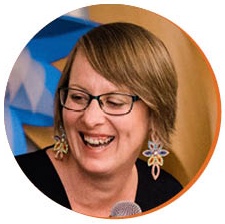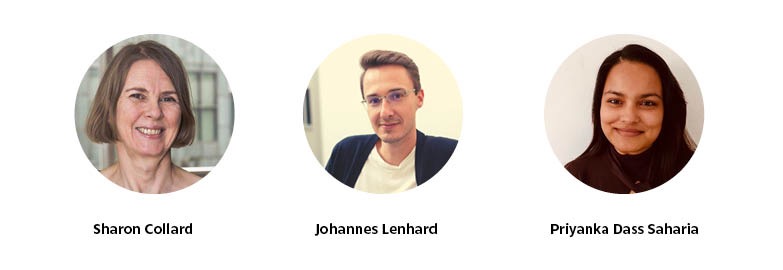
Dr Erin B. Taylor, economic anthropologist, co-Founder and Consultant at Finthropology, reflects on the panel she chaired, “Fintech, auditing, and blockchain”, which included three talks by academics and industry professionals who all work on issues related to socially-responsible finance.
Financial Account-ability: Reflections from the Response-ability Summit 2021
In her book Staying with the Trouble, Donna Haraway argues that most of us approach the future in unproductive ways. We either see the future as being doomed (it’s too late to fix), or we assume that all our problems will be solved by technology.
Instead, Haraway advises us, we should ‘stay with the trouble’, which I interpret as meaning sitting with problems, trying to better understand what caused them, and thinking more deeply about what solutions are really needed. Moreover, staying with the trouble involves going through this process collectively.
Haraway’s work is highly influential among scholars of technology. On May 20-21 I attended the Response-ability Summit (formerly the Anthropology + Technology Conference), a yearly event that brings thinkers together to discuss how technology is shaping the world in ways that are desirable and not-so-desirable. The Summit’s name comes from Haraway, who coined the term to urge us to take responsibility for creating a better world in an active way: using our abilities to respond. As the conference’s founder, Dawn Walter, put it:
Our new name, Response-ability, reflects our focus on action. The time for critiques is past. We need to act. It also reflects the need for anthropologists, and other social scientists, to work with others across disciplinary boundaries to “cultivate collective knowing and doing” (Haraway, SWTT, p. 34).
Food for thought for the future of finance
The Summit certainly provided a lot of food for thought for the future of finance. I chaired a panel called “Fintech, auditing, and blockchain”, which included three talks by academics and industry professionals who all work on issues related to socially responsible finance:
- Sharon Collard (University of Bristol) talked about the Nationwide Building Society’s Open Banking for Good program, which deploys a team of user experts, solution experts and process experts to solve real fintech problems.
- Priyanka Dass Saharia (Impact Strategist) explored the benefits and challenges to adopting distributed technologies (blockchain) in the context of the Aadhaar (identification) project in India.
- On a slightly different note, Johannes Lenhard (Max Planck Centre, Cambridge) discussed how ESG auditing of Venture Capitalists seems to be leading to a shift in self-reproducing power structures.

All three talks focused heavily on how financial services are shaped by stakeholder interests. But being committed to socially responsible finance can mean very different things for different parties.
Solutions experts wanted to “move fast and break things”, whereas charity partners are responsible to regulators, so they were incentivised to move more slowly.
For example, Sharon discussed how, in the Open Banking for Good program, solutions experts always wanted to “move fast and break things”, whereas charity partners have a more proscribed remit and are responsible to regulators, so they were incentivised to move more slowly.
Sharon reminded us that we need to be aware that resource availability heavily shapes partners’ ability to contribute. She explained how the charities involved were able to contribute far less than other partners because they simply did not have the resources to give the project their full attention. Being response-able in this scenario means taking the time to figure out how to work together so that the end goals are appropriate to the original aims of the program.
Johannes’s talk very much reinforced Sharon’s point. When conducting Environmental, Social and Corporate Governance (ESG) auditing, he argues, it is critical to scrutinise VC investors and the structures VCs are part of. They are generally not investing their own money but rather the funds of limited partners, and this affects their investment incentives. Moreover, he said, it is not very clear what exactly ESG means. Johannes’s talk prompted me to think that the issues are not only about being response-able, but also account-able.
VC investors are generally not investing their own money but rather the funds of limited partners, and this affects their investment incentives.
Priyanka’s talk also raised issues of accountability. She explained that in India there is no shared language between people and regulators about how we behave with respect to data or think about it. Priyanka examined non-profit bodies working with blockchain and ID management to build a data ecosystem. These bodies were trying to increase data awareness among the population. She noted that this was a difficult task because there is no standard for measuring data literacy, and language barriers also presented problems. How can you create a framework for a data protection bill when there is little consensus on what data consciousness is or how to measure it?
Staying with the trouble in finance
Above all, we need to discuss what we mean by socially response-able finance and what a financial world fit for humans would look like.
What stood out to me the most from these three talks is the sense that staying with the trouble in finance has a great deal to do with communication. We need to develop definitions of what we are trying to understand and find ways to measure them in order to be able to communicate what is actually happening. We need to take the time to bring stakeholders together so we can develop a shared understanding of the problems we are facing, and a common language to discuss them.
Above all, we need to discuss what we mean by socially response-able finance and what a financial world fit for humans would look like.
Originally published at https://finthropology.com/news-opinion/financial-account-ability-reflections-from-the-response-ability-summit-2021 and republished here with permission from the author.
